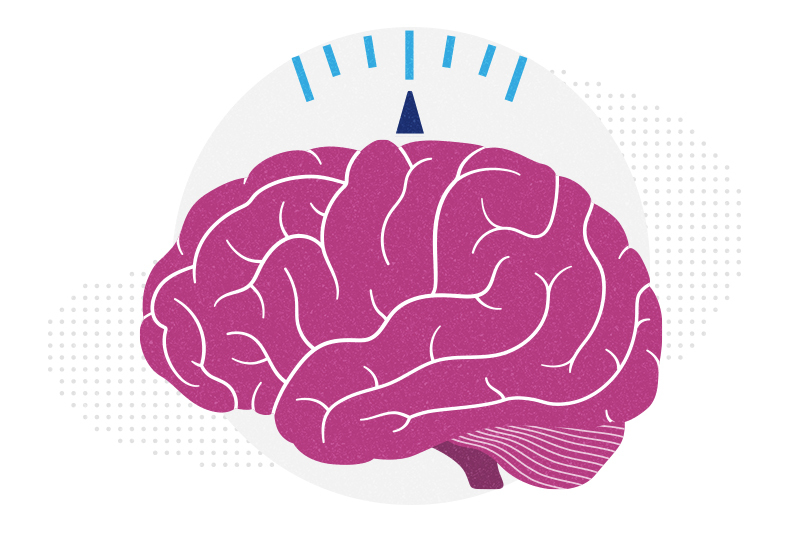BMI and the adolescent brain: A concerning connection

We all know that obesity is a growing epidemic in children and adults. A large national study now finds that preteens carrying excess weight have notable differences in cognitive performance, brain structures, and brain circuitry when compared to preteens with normal body-mass index (BMI).
Funded by the National Science Foundation’s Harnessing the Data Revolution initiative, the study involved nearly 5,000 9- to 10-year-olds at 21 U.S. sites. While it only examined correlations between BMI and brain and cannot establish causation, a significant association between BMI and brain measures remained after controlling for multiple confounding factors.
Study leader Caterina Stamoulis, PhD, a researcher in Adolescent Medicine and director of the Computational Neuroscience Laboratory at Boston Children’s Hospital, finds the correlation concerning.
“It raises an alarm that it’s important to track adolescents’ brain health, especially when they have excess BMI,” she says. “Early adolescence is a time when the brain is very actively developing, and when frontal areas of the brain — those involved in higher cognitive functions — change enormously and are vulnerable to miswiring.”
Inefficiently organized brain networks
The study, published in the International Journal of Obesity, drew its subjects from the government-funded Adolescent Brain Cognitive Development (ABCD) study. The ABCD study has collected detailed clinical, physiological, environmental, and lifestyle information, together with neuroimaging and neurocognitive data. Stamoulis, with Skylar Brooks and Calli Smith in her lab, used advanced computational methods to analyze the voluminous data sets.
In preteens with excess BMI (about 30 percent of the sample), brain circuits supporting higher-level cognitive functions, processing of reward (positive feelings or information), emotional processing, and attention were organized less efficiently, were less well connected, and were less resilient than in preteens with normal BMI.
Excess BMI also correlated with significant differences in multiple brain structures and lower performance in a task measuring fluid reasoning — the ability to think logically and solve problems in novel settings.
The differences were consistent even after adjusting for factors like sleep duration, screen time, physical activity, depression, and self-worth related to weight that may affect both BMI and brain health.
Could common factors be causing both excess BMI and altered brain development? Whether BMI plays a direct causative role or not, Stamoulis emphasizes that preteens’ brains are still changing, and that interventions can make a difference — whether they be mental health screenings, improving sleep quantity and quality, increasing physical activity, or reducing screen time.
A stake in the ground
Stamoulis now plans to analyze follow-up data from additional waves of the ABCD datasets to see what happens with the brain over time. “Once the brain is done wiring, it’s more difficult to intervene,” she says. “We want to see what neurodevelopmental trajectories these youth are on.”
She also hopes to analyze genetic and nutritional data, which the ABCD study plans to release in the future.
“We plan to use the longitudinal data from the ABCD study to track neural, cognitive, and mental health outcomes in youth with excess BMI,” she says. “With this cross-sectional baseline study, we’re setting the foundation for long-term research.”
Learn more about Boston Children’s Computational Neuroscience Laboratory.
Related Posts :
-

Obesity is increasing people's risk of cancer. Why?
Obesity is now a global epidemic, and it is increasing people’s risk for cancer. The National Cancer Institute lists ...
-

Babies and screen time: New research calls for caution
If you’re a parent, you’ve probably been there. You have a baby howling for attention, but you need ...
-

Sound sleep, sound mind: The importance of sleep for preteens’ developing brains
When your preteen doesn’t get enough sound sleep, some of the signs, like crankiness, are obvious. But some of ...
-

Regular physical activity linked to more 'fit' preteen brains
We know exercise has many health benefits. A new study from Boston Children’s Hospital adds another benefit: Physical activity ...





